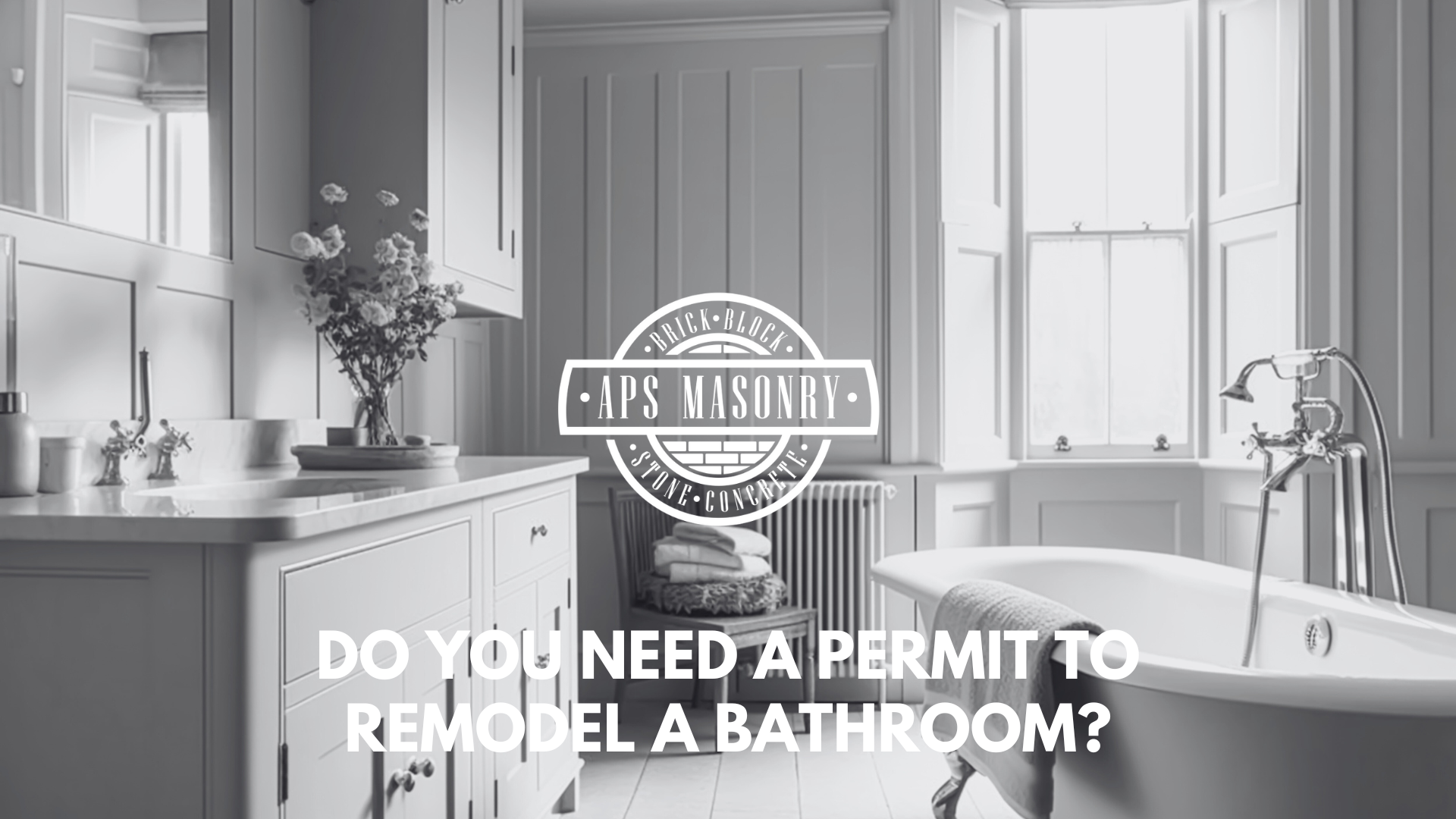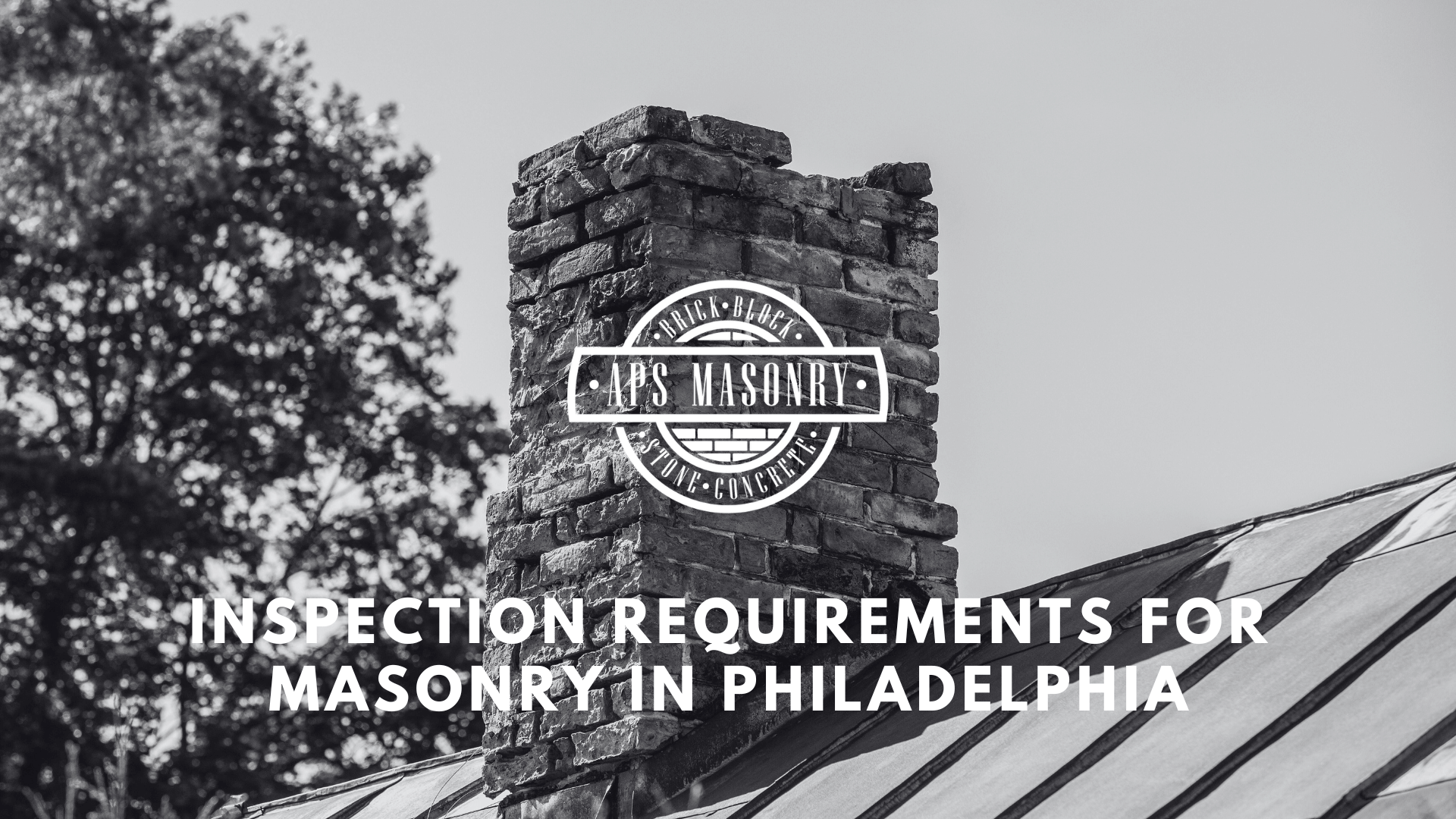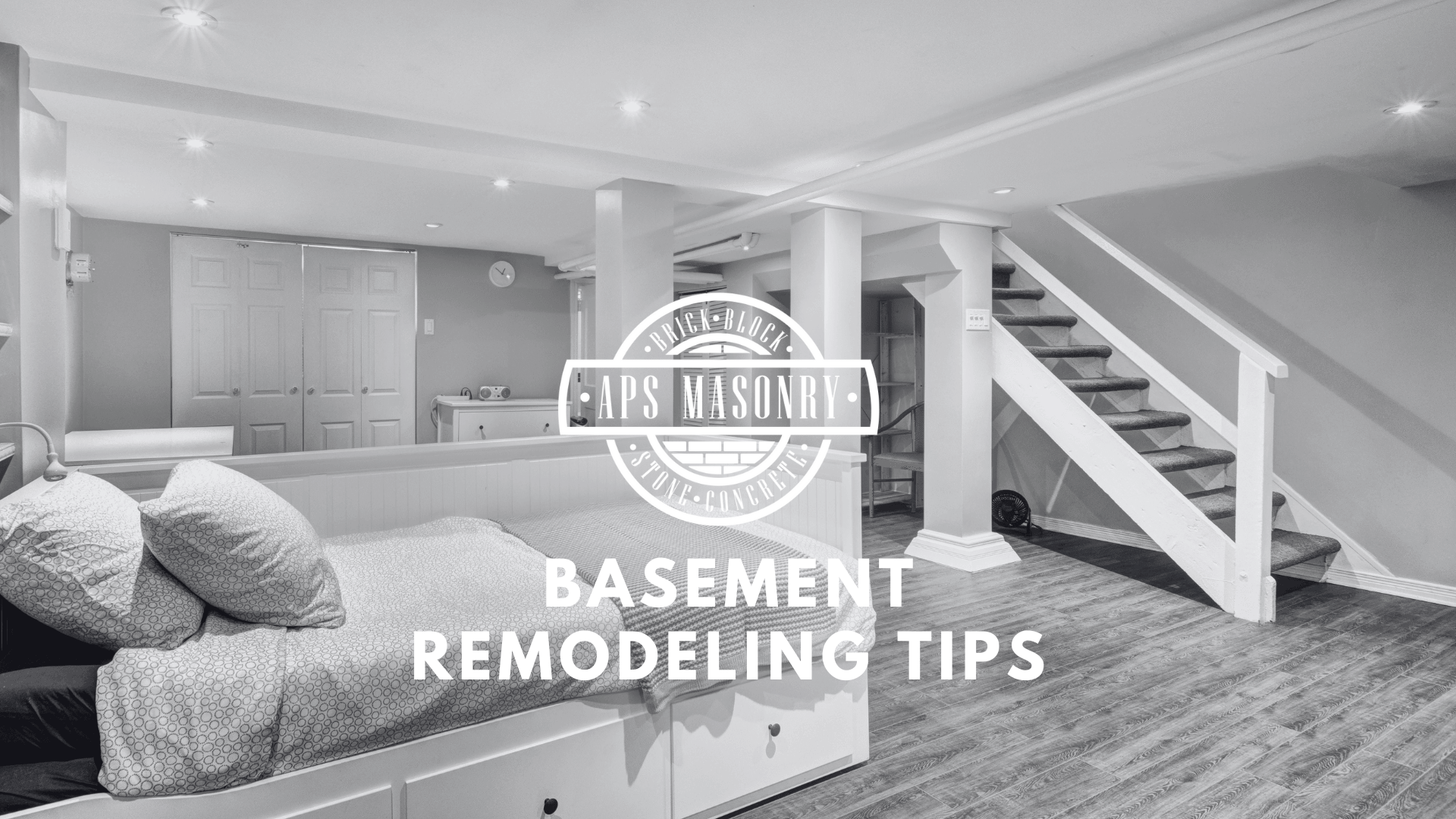Guide to Gutting a House: Costs, Steps, and Tips
Gutting a house is no small feat; it means stripping your house down to its essential structure and redesigning it from the inside out.

Considering a bathroom remodel? Don't overlook the importance of permits. They're not just red tape; they're your assurance of safety, legality, and quality. A staggering 30% of homeowners start out on home renovations without securing the proper permits, potentially leading to legal repercussions and decreased property values.
With a permit, you protect your investment, ensure compliance with regulations, and enhance your property's value. Our team at APS Masonry is here to guide you through the process, ensuring a smooth renovation journey. Let's elevate your bathroom together, one permit at a time.
This article explores the intricacies of bathroom remodel permits, highlighting when they're necessary, the advantages of acquiring one and guiding you through the application process. Empower yourself with the knowledge to tackle your bathroom remodel with assurance, following regulations for a compliant and stunning result.
You might wonder why the insistence on bathroom remodeling permits. Well, these permits serve as a guarantee that the alterations you’re making to your home are safe and adhere to local building codes. This is particularly crucial when it comes to changes in your home's plumbing, electrical, or structural elements. Without a permit, you run the risk of creating potentially hazardous conditions that could lead to accidents and injuries.
Moreover, obtaining a permit for your bathroom remodeling project offers a range of benefits beyond just safety. It:
In essence, a building permit reassures that the job is correctly executed, protecting the current and future inhabitants of your home.
Building permits transcend paperwork and are a crucial part of home renovations. They guarantee that remodeling projects, especially those involving significant changes like bathroom remodeling, adhere to:
This protection goes a long way in preventing substandard and unsafe work, thus keeping you and your loved ones safe.
Building permits are particularly vital in bathroom remodeling as they certify compliance with building codes and regulations. Whether you’re constructing a new bathroom or making substantial alterations to an existing one, a permit is a must. They validate adherence to approved plans and guarantee that the construction meets the necessary standards, thereby reducing potential risks and preventing legal complications.
Though acquiring a permit may appear troublesome, it brings with it several benefits. One of the most significant advantages is that it protects homeowners from unlicensed contractors. Engaging a professional contractor offers legal protection and guarantees the contractor’s compliance with necessary requirements. Additionally, it encourages them to carry out the work safely and competently. Some benefits of obtaining a permit include:
Besides, securing a remodeling permit is key in averting legal issues as it confirms homeowners’ adherence to local building codes and standards. Failing to obtain the required permits could lead to fines or other legal consequences, especially during a renovation project. Also, potential fines or penalties for failing to obtain a permit may include:
.jpg?width=683&height=384&name=APS%20M%20Template%20(4).jpg)
While not every bathroom remodeling project requires permits, those including large-scale changes usually do. Some common examples include structural changes such as removing walls or adding windows, especially if it’s part of a comprehensive renovation. Plumbing that involves moving walls and affecting plumbing lines as part of a new construction or significant renovation also typically requires a permit.
Similarly, electrical upgrades in a bathroom remodel require a permit in accordance with building regulations, especially for total bathroom renovations. Knowing the types of projects that require permits helps homeowners in planning their remodels more efficiently. It’s essential to determine early on whether your project falls into one of these categories, as the process of obtaining a permit takes time and may affect your remodeling timeline.
Let’s explore structural changes in depth. These are changes that alter the existing layout of your bathroom, such as relocating walls, installing new plumbing fixtures, or modifying electrical wiring. These modifications are not just about aesthetics; they also have the potential to impact the safety and functionality of your home.
That’s why permits are required for structural changes. They guarantee that these modifications comply with safety regulations and local building codes. Without a permit, structural changes could pose safety hazards and even legal complications, so it’s always best to stay on the safe side and obtain the necessary permits.
Plumbing modifications are changes that involve moving or altering your bathroom’s plumbing system. Examples include:
These modifications can affect your home’s plumbing system, and without proper oversight, they could lead to issues like leaks and water damage.
That’s where permits come in. They guarantee that these plumbing modifications are completed correctly and comply with local codes and safety standards. This is important not just for maintaining the functionality of your bathroom but also for preventing potential plumbing issues down the line.
Finally, there are the electrical upgrades. These include changes like rewiring your bathroom or adding new outlets. These modifications need to be handled with care, as improper electrical work can lead to safety hazards like electrical shocks or fires.
Similar to structural changes and plumbing modifications, electrical upgrades require permits to guarantee safe installation and adherence to local codes. So, whether you’re planning to install a fancy new light fixture or add extra outlets for convenience, make sure to check with your local building department about the necessary permits.
Though we’ve extensively discussed when permits are necessary, it’s worth mentioning that not all bathroom remodeling projects need permits. Some changes, such as cosmetic updates and minor repairs, typically do not need permits. These are projects that do not significantly alter your bathroom’s structure or systems.
Cosmetic updates include simple changes like painting your bathroom or replacing hardware like faucets or shower heads. Minor repairs, on the other hand, include small-scale fixes that do not involve modifications to the plumbing, electrical systems, or structure of the bathroom. These changes can still make a big difference in the look and feel of your bathroom, but they do not involve the same level of complexity or potential safety hazards as larger remodeling projects.
Cosmetic updates improve the aesthetics of your bathroom but do not involve significant alterations to its structure or systems. These include painting, installing new bathroom accessories, or replacing hardware such as faucets and shower heads.
These updates are typically exempt from permit requirements because they do not pose the same safety risks as structural changes or system modifications. However, it’s still crucial to carry out these updates responsibly and in accordance with any relevant guidelines or regulations.
Minor repairs are another category of bathroom remodeling projects that usually do not require permits. These include small-scale fixes like repairing a leaky faucet or replacing a broken tile. Such repairs are generally considered minor because they do not greatly alter the bathroom’s structure or systems.
While these repairs may seem small, they can make a big difference in the functionality and appearance of your bathroom. However, even though they typically do not require permits, it’s still important to perform these repairs properly to prevent potential issues down the line.
Having discussed when permits are required and when they’re not, let’s now talk about obtaining a bathroom remodel permit. The process involves working with a licensed contractor and submitting a permit application. It’s important to approach this process with diligence and attention to detail to experience a smooth and problem-free remodel.
It’s highly advised to collaborate with a licensed contractor, who can guide you through local building codes and permit requisites for your construction project. They can also assist with the permit application process, which involves providing detailed information about the project and waiting for approval from the building department. In some cases, building inspectors may be involved to prove compliance with building codes.
Engaging a licensed contractor for your bathroom renovation offers numerous advantages, including:
Hiring a licensed contractor makes it far more likely that your bathroom remodel will be completed to the highest standards and meet all legal requirements.
A licensed contractor can provide the following benefits for your bathroom remodel:
After finalizing your remodeling plans and engaging a contractor, the next step is to submit a permit application. This involves providing detailed information about your project, such as:
The permit application is then reviewed by the local building department to check compliance with local building codes and safety standards. Depending on your location, this process can take anywhere from a few days to several weeks, so it’s important to account for this in your remodeling timeline.
Despite the attraction of skipping the permit process to save time or money, it’s vital to understand the possible repercussions of remodeling without a permit. These can include:
Undertaking remodeling without a permit can also pose issues when you decide to sell your home. Potential buyers may be wary of purchasing a home with unpermitted work, as this can indicate potential safety issues or non-compliance with building codes.
Fines and penalties for remodeling without a permit can be quite significant. Depending on the extent of the project and the nature of the violation, homeowners could face civil fines of up to $5,000 per violation. In some cases, the fines can be even higher, with homeowners being fined $500 per day for violating building codes.
To make matters worse, the fines for not obtaining a permit could potentially amount to three or four times the original permit fees. This means that what started as a cost-saving measure can quickly become a big financial burden, especially if you need a permit and fail to obtain it.
In addition to financial penalties, remodeling without a permit can lead to a range of legal issues. These can include:
Even if you’re not planning to sell your home anytime soon, these legal issues can still have a significant impact. They can cause stress, delay your remodeling project, and potentially lead to additional costs if you need to make changes to comply with building codes.
Lastly, remodeling without a permit can diminish the value of your property. Potential buyers are often wary of purchasing a home with unpermitted work, as it can indicate potential safety issues or non-compliance with building codes.
Moreover, unpermitted remodeling work may not comply with building codes, leading to safety and quality issues. This could lead to:
Starting a bathroom remodel can be a big undertaking. If you're looking for expert advice, quality craftsmanship, and a hassle-free permit process, look no further than APS Masonry.
Our team of licensed professionals is well-versed in local building codes and permit requirements, making sure your project is completed to the highest standards. Don't handle the complexities of remodeling alone. Contact APS Masonry today for all your bathroom remodeling needs and experience the peace of mind that comes with expert guidance and exceptional service.
In conclusion, obtaining a permit for your bathroom remodeling project is not just a legal requirement but also a critical step in ensuring the safety and quality of your remodel. Whether you’re making significant structural changes, modifying your plumbing system, or upgrading your electrical systems, a permit guarantees that your remodel follows local building codes and safety standards.
While the process of obtaining a permit can be complex and time-consuming, the benefits far outweigh the potential consequences of remodeling without a permit. By working with a licensed contractor and doing your due diligence, you can guarantee a smooth, compliant, and successful bathroom remodel. Here’s to a safer, more beautiful bathroom!
Yes, you can remodel your own bathroom in Pennsylvania. For significant renovations that involve plumbing, structural, electrical, or mechanical changes, a building permit is necessary. However, simple updates like replacing cabinetry without altering the layout typically do not require a permit.
In Pennsylvania, replacing a toilet may or may not require a permit. It is best to check with local building codes as some municipalities may require a plumbing permit for such replacements.
Yes, in Philadelphia, a permit is required for bathroom remodeling when the work involves structural changes, plumbing, electrical, or mechanical installations, or substantial repairs.
Yes, you need a permit to remodel a bathroom in North Carolina as per state laws regarding construction and renovation permits. This includes any construction, repair, or alteration to a building or structure.
A licensed contractor can help by providing guidance on building codes and permit requirements, as well as assisting with the application process to ensure compliance with regulations.

Gutting a house is no small feat; it means stripping your house down to its essential structure and redesigning it from the inside out.

Getting masonry work done in Philadelphia isn’t as simple as hiring a contractor and breaking ground. If you're building steps, repairing a facade,...

.